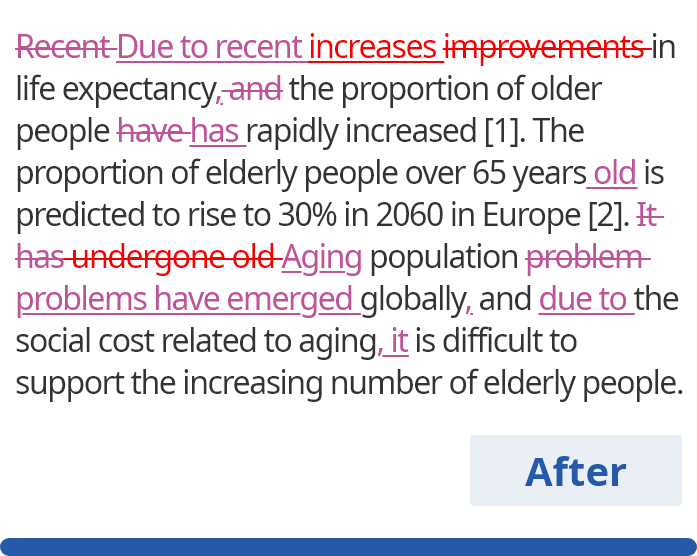What are Phrasal Verbs?
A phrasal verb is a phrase consisting of a verb combined with a preposition, adverb, or both. The combination of a verb with a particle (preposition or adverb) creates a new meaning different from the definitions of each component word.
Phrasal verbs should be treated as an independent unit of meaning within a sentence. It is also important to note that many phrasal verbs may have more than one meaning.
How to Form a Phrasal Verb
A phrasal verb consists of a base verb (e.g., get) and an adverb (e.g., along) or/and a preposition (e.g., with) to create an independent unit of meaning that describes a specific action.
Phrasal verbs can be formed in three ways: verb + preposition; verb + adverb; or verb + adverb + preposition.
Combining a verb with a preposition
Many phrasal verbs are created by adding a preposition to a verb. The preposition does not perform the same function in every phrasal verb.
- Example
- Use up: to exhaust, to use entirely
The guest used up all the water.
- Example
- Make up: to reconcile
She made up with her parents.
Combining a verb with an adverb
Other phrasal verbs are created by adding an adverb to the main verb.
- Example
- Take after: to resemble, to look like
She takes after her mother.
- Example
- Turn off: to shut off, to stop
She turned off the lights.
Combining a verb with an adverb and a preposition
Finally, some phrasal verbs are composed of a verb followed by an adverb and a preposition. Note that the adverb or preposition in these types of phrasal verbs cannot usually be separated from the main verb in the sentence.
- Example
- Get away with: to escape punishment
Don't think about getting away with this.
- Example
- Sneak up on: to surprise from behind
The cat snuck up on the mouse before pouncing.
When to Use Phrasal Verbs
Phrasal verbs are commonly used in spoken English or everyday written English. However, using phrasal verbs in academic writing is not recommended. Rather, writers should consider replacing phrasal verbs with a more “academic” single verb that has the same meaning.
Replacing Phrasal Verbs with Academic Verbs
However, you may need to use phrasal verbs at times, even in academic writing. When using phrasal verbs in academic writing, make sure that the phrasal verb used is not too informal.
- Phrasal Verb
- This paper looks at the effect of Drug Y on patients.
- Academic Verb
- This paper examines the effect of Drug Y on patients.
- Phrasal Verb
- The research found out that Drug Y had no effect on the patients.
- Academic Verb
- The research discovered that Drug Y has no effect on the patients.
The following phrasal verbs can often be found in academic writing: carry out, consist of, and subject to.
Separating Phrasal Verbs in Sentences
Some phrasal verbs allow the preposition or adverb to be separated from the main verb, while others do not. Phrasal verbs can be separated into two categories: separable phrasal verbs and inseparable phrasal verbs.
Separable phrasal verbs
Separable phrasal verbs are those in which the verb and preposition/adverb can be separated. The preposition or adverb can be placed either directly following the verb or following the object.
- Unseparated Phrasal Verb
- The student gave back the book.
- Separated Phrasal Verb
- The student gave the book back to her.
- Unseparated Phrasal Verb
- Don’t forget to hand in your assignment.
- Separated Phrasal Verb
- Don’t forget to hand your assignment in.
Note that when the object is a pronoun, the preposition or adverb must be placed after the pronoun.
- Correct
-
The boy might set off the alarm.
He might set it off.
- Incorrect
- The boy might set off it.
Inseparable phrasal verbs
Inseparable phrasal verbs are those in which the verb and preposition or adverb cannot be separated. The preposition or adverb must be placed directly after the verb.
- Correct
- The thieves broke into the house last night.
- Incorrect
- The thieves broke the house into last night.
- Correct
- Please go over the materials before the lecture.
- Incorrect
- Please go the materials over before the lecture.
List of Common Phrasal Verbs
| Phrasal Verb | Definition | Example in a Sentence | Separable/ Inseparable |
|---|---|---|---|
| Back down |
Withdraw from commitment or position |
It’s too late for them to back down now. |
Inseparable |
| Back off |
Retreat from action or confrontation |
The attackers finally backed off and left the victim alone. |
Inseparable |
| Back up |
Support, defend |
I need you to back me up. |
Separable |
| Call back |
Return a phone call |
Can she call you back in an hour? |
Separable |
| Call for |
Demand, require something to be done |
This situation calls for immediate action. |
Inseparable |
| Call in |
Make a phone call |
Employees should call in when they are sick. |
Separable |
| Call off |
Cancel |
Since it’s raining outside, we should call off the game. |
Separable |
| Deal with |
Handle, take care of |
She will deal with this problem herself. |
Inseparable |
| Dig into |
Investigate |
The researchers hope to dig into this issue soon. |
Inseparable |
| Draw back |
Retreat, move backwards |
The military can’t draw backthe troops now. |
Inseparable |
| Drop by |
Pay a short visit to someone’s location |
We will drop by your place on the way to the office. |
Inseparable |
| Drop off |
Deliver someone or something |
I have to drop my sister off at school. |
Separable |
| End up |
Finally reach a state, place, or action |
She ended up in the hospital after the accident. |
Inseparable |
| Fall apart |
Break or fall into pieces |
The business deal fell apart. |
Inseparable |
| Fall behind |
Fail to maintain a certain level |
Why are you falling behind in school? |
Inseparable |
| Fall out |
Become loose and drop |
He opened his bag and some money fell out. |
Inseparable |
| Fall through |
Fail, not happen as planned |
Unfortunately, the planfell through. |
Inseparable |
| Figure out |
Understand, find ananswer |
Please give me a few minutes to figure this out. |
Separable |
| Fill in for |
Substitute for someone else |
Can you fill in for me today at work? |
Inseparable |
| Fit in with |
Feel comfortable or in harmony with |
This structure doesn’t seem to fit in with its surroundings. |
Inseparable |
| Focus on |
Concentrate on something |
You should focus on one problem at a time. |
Inseparable |
| Frown upon |
Disapprove |
Bad behavior in public places is very much frowned upon. |
Inseparable |
| Get along with |
Be on good terms |
It would be nice if you could get along with your brother. |
Inseparable |
| Get away |
Escape |
She got away from the thief. |
Separable |
| Get down to |
Start doing something |
Let’s get down to business right away. |
Inseparable |
| Get off |
Leave (bus, train, plane) |
I will be getting off at this stop. |
Separable |
| Get out of |
Leave a place, avoid doing something |
He tried to get out of doing homework. |
Separable |
| Get over |
Recover from |
He got over the breakup rather quickly. |
Inseparable |
| Get rid of |
Remove |
It’s time to get rid of all the old clothes. |
Inseparable |
| Give in |
Surrender, Accept defeat |
She never gives in easily. |
Inseparable |
| Go after |
Pursue (an object or a goal) |
Do whatever it takes to go after your dream. |
Inseparable |
| Hand in |
Submit |
Don’t forget to hand in your assignment. |
Separable |
| Hand out |
Distribute |
I need help handing these papers out. |
Separable |
| Hang on to |
Keep a hold on something |
Hang on to the rope and don’t let go! |
Inseparable |
| Hang out |
Spend time together |
She hangs out with her new friends a lot. |
Inseparable |
| Hang up |
End a telephone conversation |
Please don’t hang up on me. |
Inseparable |
| Head for |
Go towards a certain direction |
I’m heading for Montana this summer. |
Inseparable |
| Indulge in |
Allow oneself to enjoy something |
She indulged in some expensive wine. |
Inseparable |
| Jot down |
Take quick notes |
Can you jot down the number please? |
Separable |
| Keep up with |
Stay at the same level as someone or something |
It’s hard to keep up with so much homework. |
Inseparable |
| Leave out |
Omit |
He left out the answer on purpose. |
Separable |
| Look ahead |
Think of the future |
Look ahead and plan accordingly. |
Inseparable |
| Look through |
Examine quickly |
The students looked through the book before the test. |
Inseparable |
| Make up with |
Reconcile |
I made up with my sister after our huge fight. |
Inseparable |
| Miss out on |
Lose an opportunity |
Don’t miss out on the chance to get it for free. |
Inseparable |
| Move out |
Leave a certain place for another one |
He moved out of the apartment after finding a more suitable place. |
Inseparable |
| Name after |
Give the same name to something |
She is named after her grandmother. |
Inseparable |
| Pick up |
Learn, understand |
It’s hard to pick up on what the professor is saying. |
Separable |
| Pull through |
Overcome difficulties |
She managed to pull through the illness. |
Separable |
| Put up with |
Tolerate |
I can’t put up with your whining anymore. |
Inseparable |
| Set off |
Start something |
We set off for the trip early in the morning. |
Separable |
| Show up |
Appear |
She managed to show up an hour late. |
Inseparable |
| Take apart |
Separate the components |
Take apart the machine to see what it’s made up of. |
Separable |
| Take off |
Leave the ground |
The airplane took off successfully. |
Separable |
| Think over |
Consider something |
Please think it over before making a final decision. |
Separable |
| Use up |
Exhaust |
We used up all the gas in the tank. |
Separable |
| Warm up |
Reheat something |
Could you please warm up the milk? |
Inseparable |
| Wear away |
Disappear after use or over time |
The rocks were worn away by the rain. |
Inseparable |












